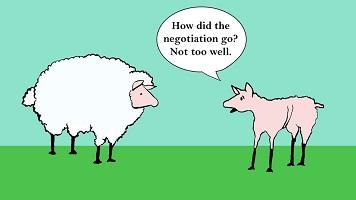How to Avoid a Bad Landlord Experience!
February 18, 2019

If, like many of my clients, you’ve been burned by a bad landlord/tenant experience (and who hasn’t?) you may feel stress and anxiety around the idea of committing to your next lease. If you are determined to avoid that situation again, there are some important steps to take to make your leasing relationship as painless as possible.
Bad landlord relationships run the gamut from benign neglect to outright toxic relationships. Fortunately, most of the issues that drive tenants crazy fall into the former category. That’s good news (sort of) but a list of small aggravations and annoyances can take a toll on your business performance and your personal productivity, too.
Here are some critical steps to take to make sure that you are making the right decision for your next commercial real estate move.
Find out the current rate of turn-over the landlord is experiencing. This will give you a good read on how tuned in your potential landlord is to what’s going on at the property. If they can’t, or won’t, disclose this information, it’s a red flag as to what the future relationship holds.
A landlord should be able to state their retention ratio, or the ratio of tenants who renew divided by the number whose lease expires. A low tenant retention is a strong indicator that something is amiss. On the other hand, a high tenant retention ratio usually means that tenants are getting good value from the landlord. While past experience is no indicator of future performance, these numbers can indicate issues that need to be investigated.
Do you have contacts that are current or former tenants? If so, talk to them about their experience with the landlord. Be prepared with questions about important things like how responsive the landlord is to requests, the quality and frequency of communication, accessibility and other factors that indicate a willingness to listen and respond to tenant concerns. For example:
How easy is it to get in touch with the landlord?
Are they proactive or reactive regarding repairs and maintenance issues?
Is the landlord receptive to suggestions or requests?
All this is just part of the due diligence you will undertake to make sure your next commercial lease provides an opportunity for your business to grow and thrive. The work you undertake now will avoid costly issues from arising after the lease is signed.
Of course, this may sound like a daunting and time-consuming challenge. If so, securing experienced, reputable tenant representation will alleviate many of the stresses, strains and worries about making that move. It’s our job to help you find a commercial lease that works for you. Give us a call today!
< Return to News